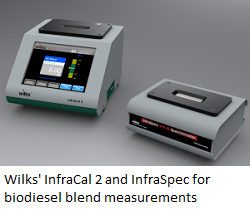 A California biodiesel maker is getting a $3.4 million grant to build and operate a refinery in Oakland. Viridis Fuels, LLC, is the benefactor of the California Energy Commission grant that will help the company turn fats, oils and greases into 20 million gallons of biodiesel each year.
A California biodiesel maker is getting a $3.4 million grant to build and operate a refinery in Oakland. Viridis Fuels, LLC, is the benefactor of the California Energy Commission grant that will help the company turn fats, oils and greases into 20 million gallons of biodiesel each year.
The Viridis website says the company will use state-of-the-art technology that delivers 100 percent yields from the feedstock with virtually no contaminated waste water discharge.
The selected refining process, which includes degumming, bleaching, cold soak filtration, transesterification and esterification, can process even the most problematic multiple feedstocks to achieve an ASTM 6751 Grade finished product, in a plant with BQ-9000 Certification, that satisfies and exceeds all state and federal quality standards.
Highlights of the technology process
– Waterless patented resin technology, proven through operation of over 34 plants worldwide, virtually eliminates the need to handle back-end contaminated water.
– Multi-feedstock capability converts even the most problematic waste feedstocks and eliminates dependence on the availability and susceptibility to price changes of a single source of raw material.
– Sulfur and heavy metals removal which had been a serious challenge for earlier processing technologies.
– 100% Free Fatty Acid (FFA) conversion with no stripping so that no raw material is lost in processing.
The plant will use tallow; waste fats, oils and grease (FOG), yellow grease, virgin oils as needed and appropriate and purpose-grown crops and algae as they develop.
to construct and operate a biodiesel production facility in Oakland. This facility will produce up to 20 million gallons of biodiesel annually from fats, oils and grease.








